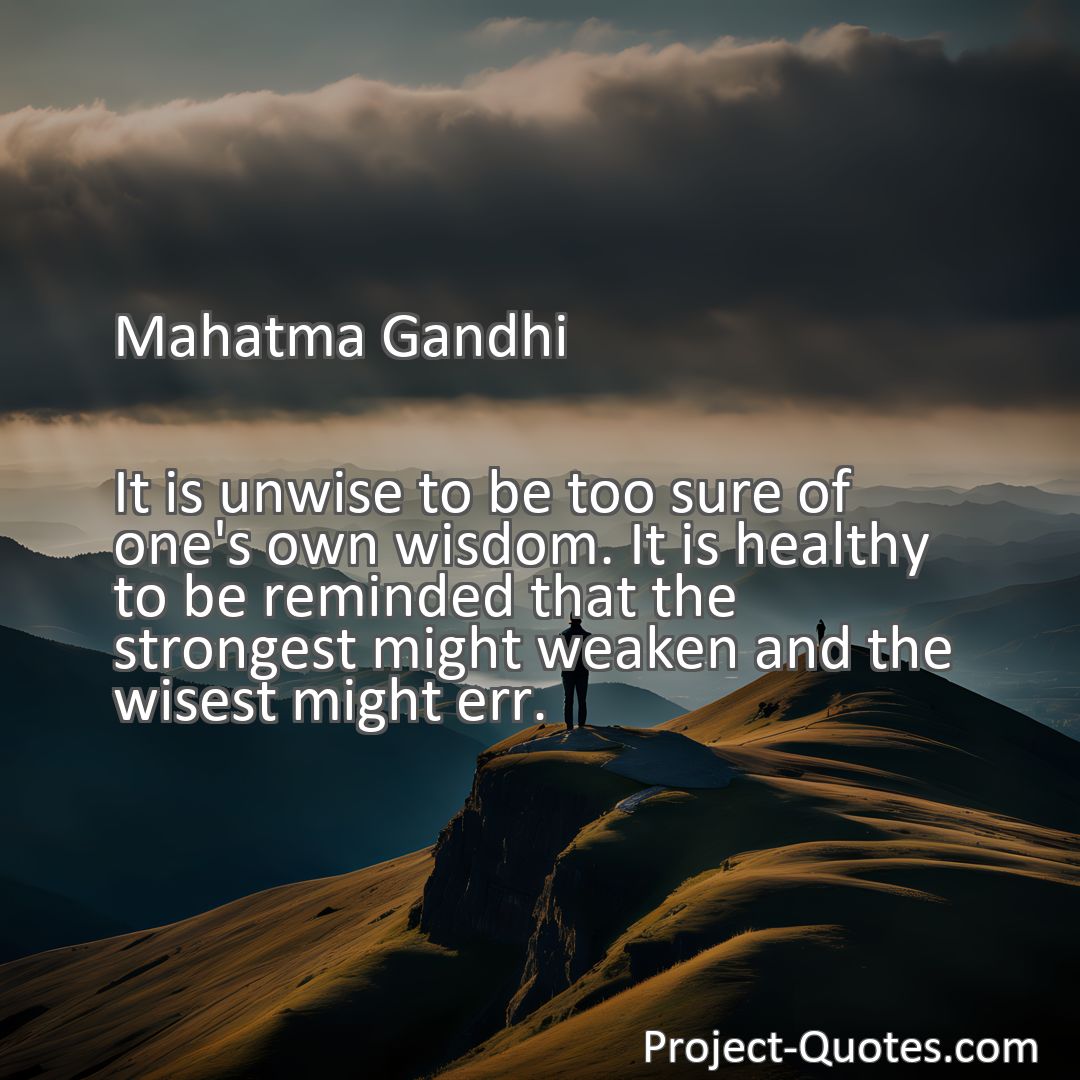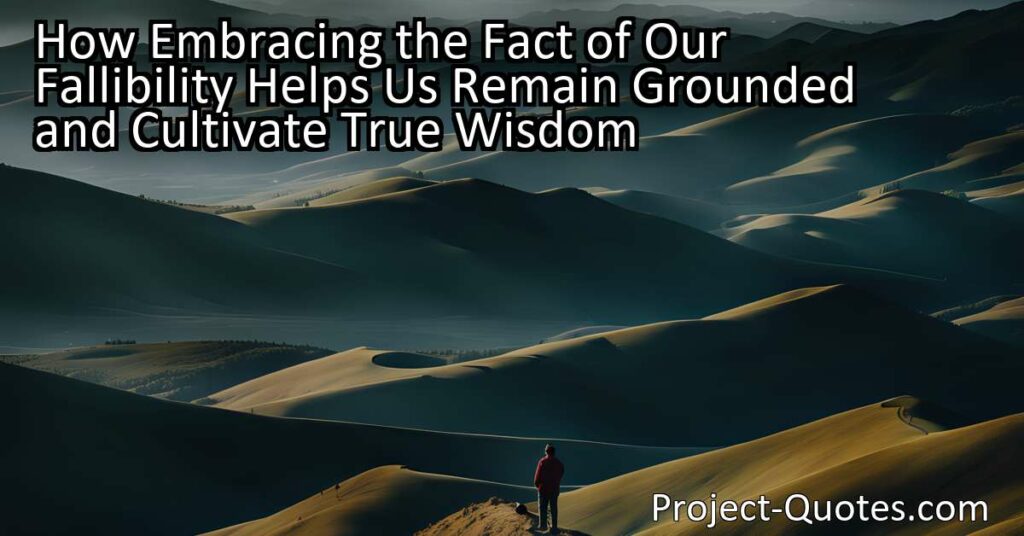It is unwise to be too sure of one’s own wisdom. It is healthy to be reminded that the strongest might weaken and the wisest might err.
Mahatma Gandhi
How Embracing the Fact of Our Fallibility Helps Us Remain Grounded and Cultivate True WisdomGandhi’s wise words remind us to stay humble and open-minded, as even the strongest and wisest among us can make mistakes. Recognizing our own fallibility allows us to stay grounded, learn from our errors, and treat others with compassion and understanding. By embracing the fact of our fallibility, we can cultivate true wisdom and continuously grow as individuals.
Table of Contents
- 1 It is unwise to be too sure of one’s own wisdom. It is healthy to be reminded that the strongest might weaken and the wisest might err.
- 2 Mahatma Gandhi
- 3 Meaning of Quote – It is unwise to be too sure of one’s own wisdom. It is healthy to be reminded that the strongest might weaken and the wisest might err.
- 4 Freely Shareable Quote Image
- 5 Related
Meaning of Quote – It is unwise to be too sure of one’s own wisdom. It is healthy to be reminded that the strongest might weaken and the wisest might err.
In the wise words of Mahatma Gandhi, “It is unwise to be too sure of one’s own wisdom. It is healthy to be reminded that the strongest might weaken and the wisest might err.” These profound words serve as a powerful reminder that no matter how knowledgeable or confident we may be, we must always remain humble and open to the possibility of making mistakes.
Wisdom is often regarded as a highly sought-after characteristic. People admire those who possess great wisdom and look up to them for guidance and leadership. However, Gandhi warns us against becoming too consumed by our own wisdom, for if we do, we may become blind to the potential flaws in our thinking. It is easy to fall into the trap of believing that we are always right, but this mindset can lead to arrogance and ultimately hinder our personal growth.
Allowing ourselves to be reminded of our fallibility is crucial for our growth and development. No matter how strong or wise we may think we are, it is essential to recognize that we are all human beings with limitations and prone to making mistakes. Acknowledging this fact helps us remain grounded and gives us the opportunity to learn from our errors. Instead of viewing mistakes as failures, we should embrace them as stepping stones towards self-improvement.
By accepting the possibility of erring, we also become more empathetic towards others who may have made mistakes. It is all too easy to judge and criticize others for their missteps without considering that we, too, are prone to similar errors. A humble attitude towards our own wisdom enables us to treat others with patience and understanding, fostering a more compassionate and nurturing environment.
Furthermore, recognizing the potential weakening of the strongest serves as a reminder that power and strength are not invincible. Often, those at the pinnacle of power may feel an inflated sense of self-importance, believing themselves to be untouchable. However, history has shown time and again that even the most formidable leaders can be brought down by their own hubris.
Take, for example, the downfall of various empires throughout history. Even the mighty Roman Empire, once considered unconquerable, eventually crumbled due to a combination of corruption, over-extension, and internal strife. One could argue that a lack of humility and an unwavering belief in their own wisdom played a significant role in their downfall. Therefore, it is crucial for leaders at all levels to remain open to the possibility of their own weaknesses and to approach their positions with a sense of humility.
The idea that the wisest might err reminds us that wisdom itself is not a static concept. Our understanding of the world is constantly evolving, and what we may perceive as wise today might be proven incorrect or flawed tomorrow. In an age where knowledge is readily available and easily accessible, it can be tempting to rely solely on our own opinions and beliefs. However, by remaining open to new ideas and perspectives, we allow ourselves the chance to expand our wisdom and grow as individuals.
In the face of uncertainty, it is healthy to question our own wisdom and consider alternative viewpoints. Engaging in dialogue and listening to others can broaden our horizons and challenge our preconceived notions. Only through this process of continuous learning and self-reflection can we hope to attain true wisdom.
Ultimately, Gandhi’s quote serves as a reminder that wisdom and strength are not fixed qualities to be possessed, but rather ongoing journeys that require humility and an open mind. By recognizing our fallibility and being receptive to the possibility of making mistakes, we can cultivate a greater sense of self-awareness and personal growth. Let us embrace the wisdom in Gandhi’s words and strive to be lifelong learners who continuously question, reflect, and seek to expand our understanding of the world.
I hope this quote inspired image brings you hope and peace. Share it with someone who needs it today!


